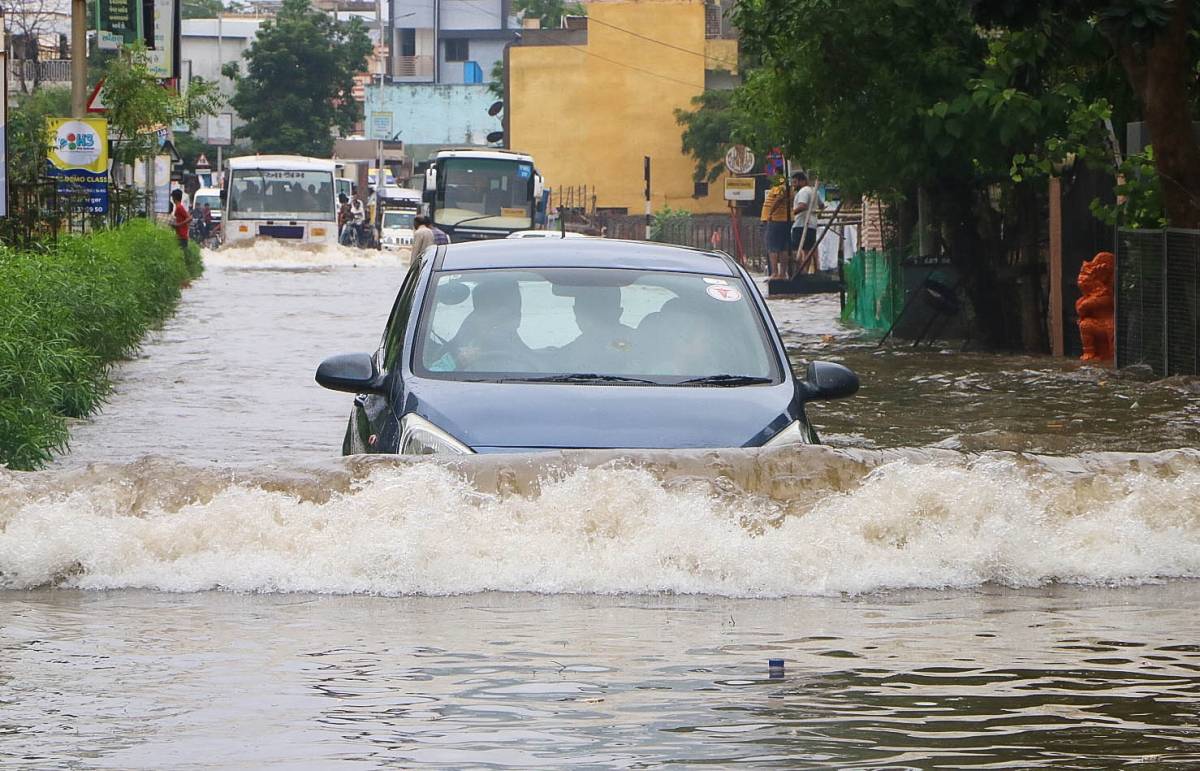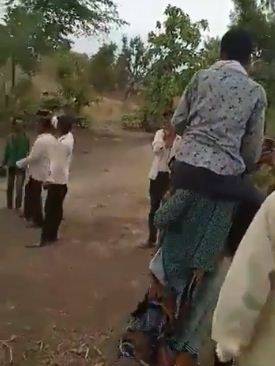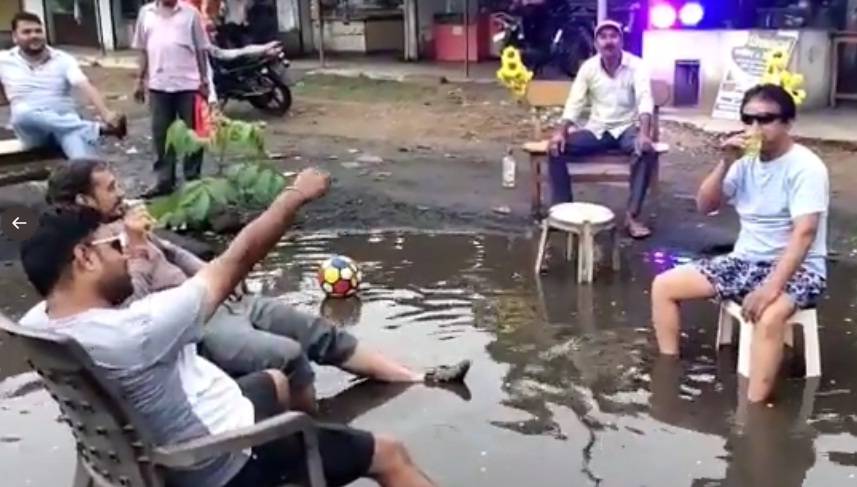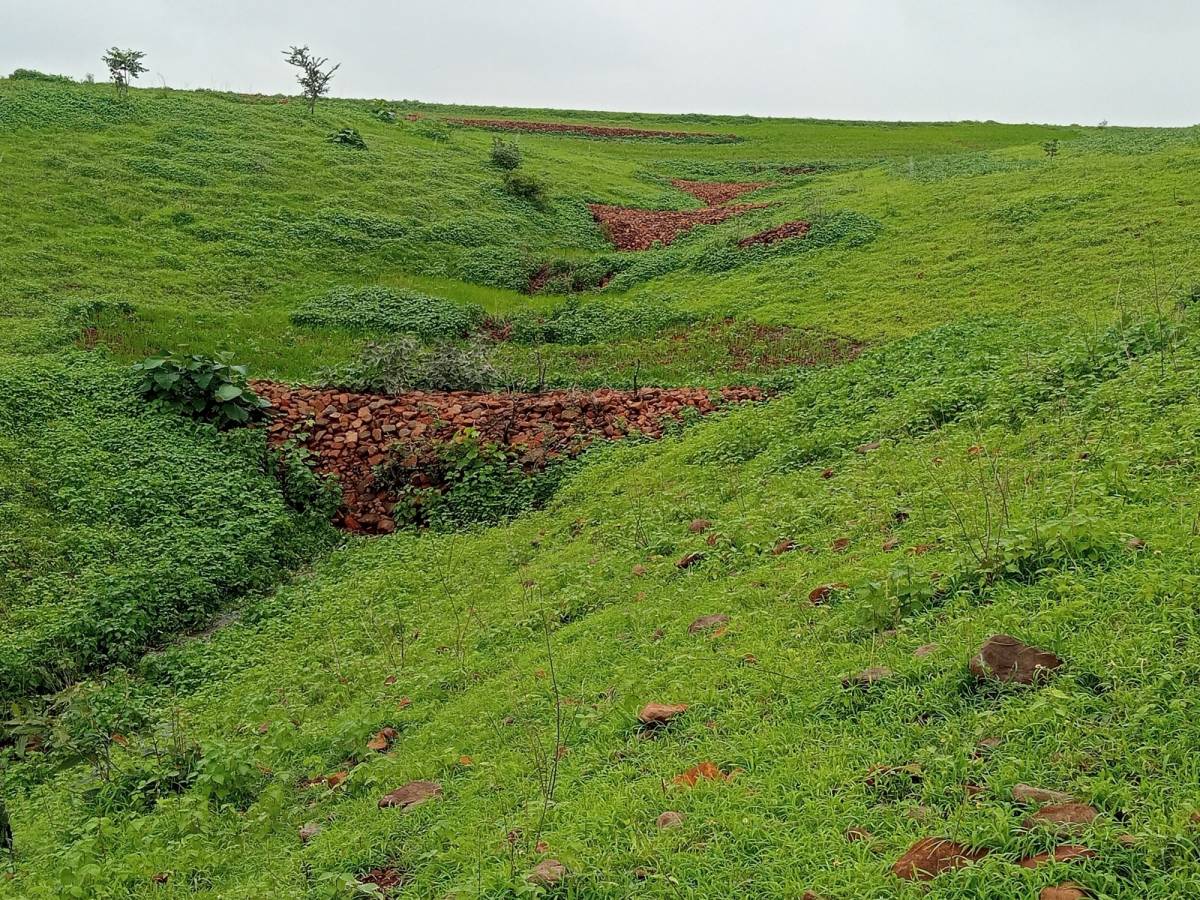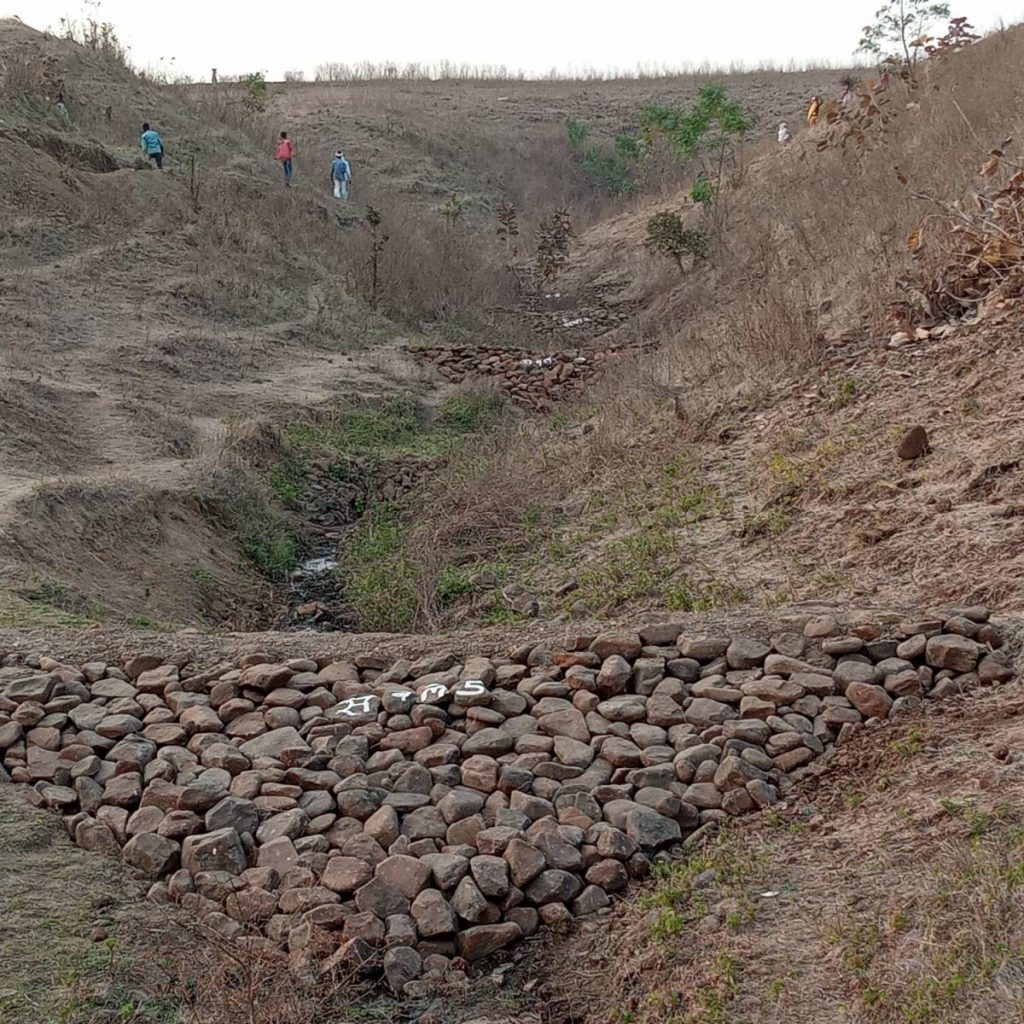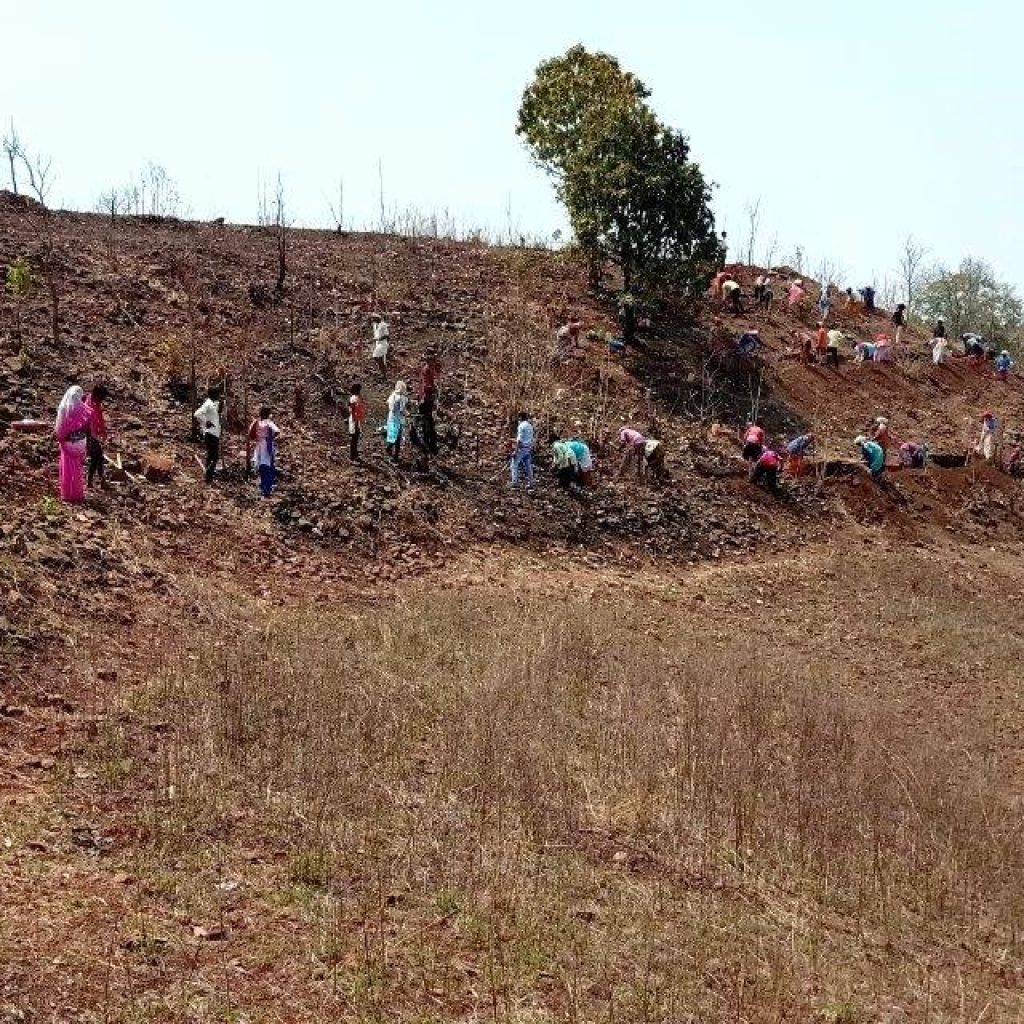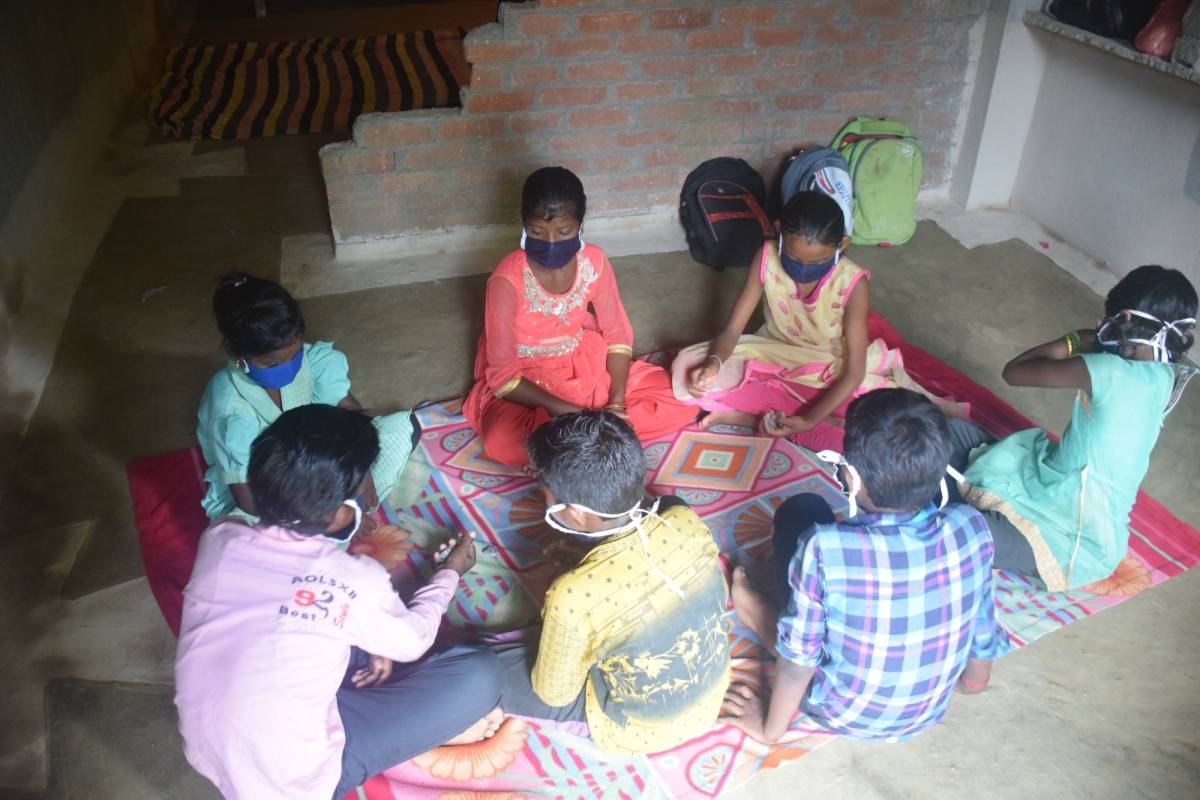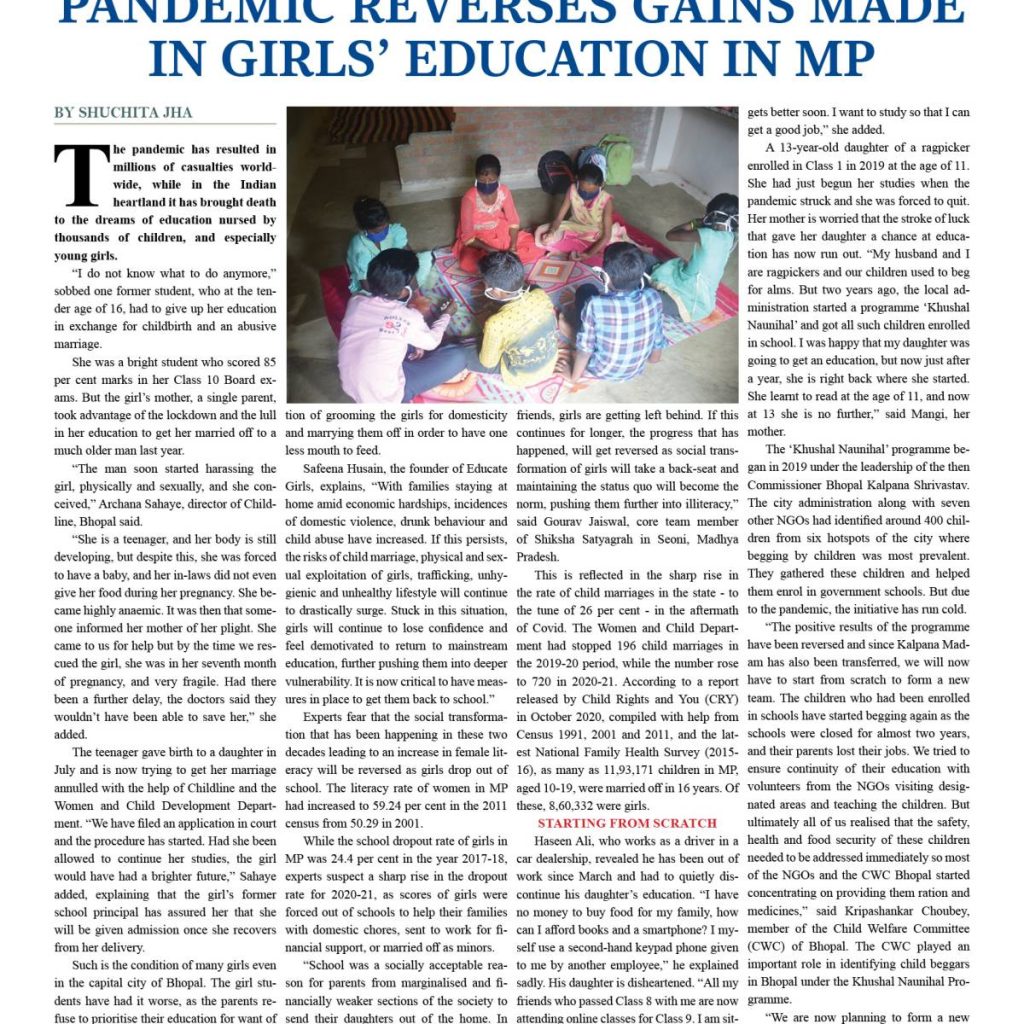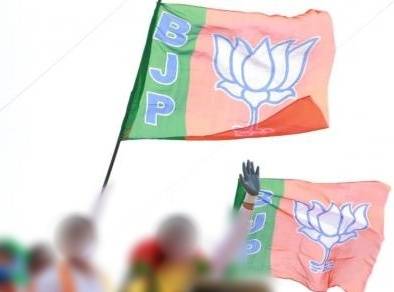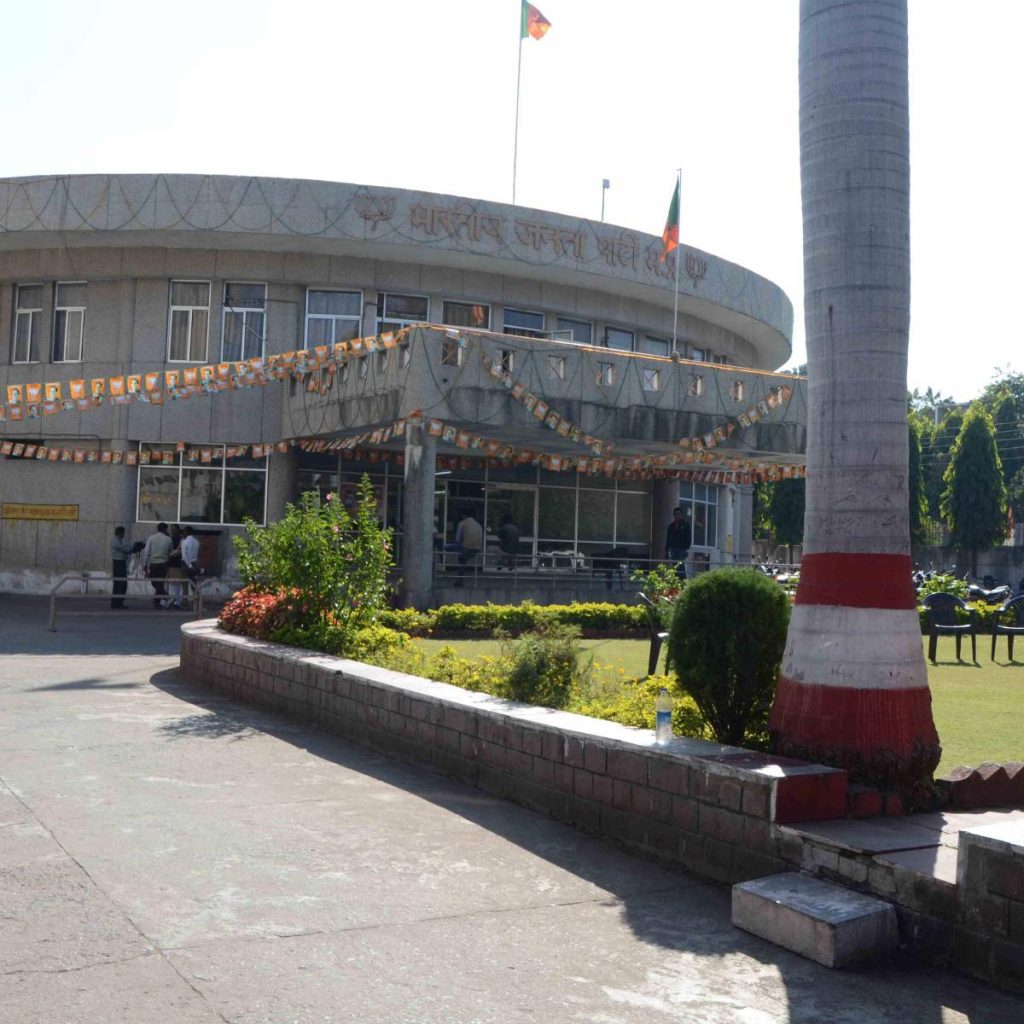While seven people died in Gujarat, Madhya Pradesh’s capital Bhopal received over three inches of rainfall in just four hours, which resulted in several residential colonies, streets and highways being flooded…reports Asian Lite News
It’s raining woes in Gujarat and Madhya Pradesh. Flood-like situation developed in several parts of Madhya Pradesh and the western state of Gujarat on Tuesday. While seven people died in Gujarat, Madhya Pradesh’s capital Bhopal received over three inches of rainfall in just four hours, which resulted in several residential colonies, streets and highways being flooded.
The weather department has issued a warning of heavy to very heavy rainfall in Gujarat with isolated extremely heavy rain in several districts for today and during the next five days.
“Seven persons died in rain-related incidents in the last 24 hours, taking the death count due to rain-related incidents like lightning, drowning, wall collapse etc in Gujarat to 63 since June 1,” state Disaster Management Minister Rajendra Trivedi said. 9,000 people were relocated and 468 rescued, he said.
Ahmedabad city received 219 mm of downpour on Sunday night, causing water-logging in many residential areas and flooding in underpasses and roads. Schools and colleges in the city remained closed on Monday.
In south Gujarat, Dang, Navsari, Tapi, and Valsad districts were affected while the rain-hit districts in Central Gujarat are Panchmahal, Chhota Udepur, and Kheda.
Prime Minister Narendra Modi and Union Home Minister Amit Shah have assured Gujarat of all possible help from the Centre.
Eighteen platoons each of the State Disaster Response Force (SDRF) and the National Disaster Response Force (NDRF) have been deployed at strategic locations for rescue and relief operations as and when required, Mr Shah said.
The Indian Coast Guard (ICG) airlifted to safety 16 people stranded along the flooded banks of the Ambika river in the Valsad district, it said in a release.
MP-Nagpur highway closed
Meanwhile, a flood-like situation developed in several parts of Madhya Pradesh on Monday. The capital city Bhopal received over three inches of rainfall in just four hours, which resulted in several residential colonies, streets and highways being flooded.
As per reports, due to continued rain and bad weather in Bhopal, at least three Bhopal bound flights were diverted to Indore. As per the Raja Bhoj Airport authorities, flights that were diverted to Indore include the Hyderabad to Bhopal (Indigo flight), Mumbai to Bhopal (Air India) Delhi to Bhopal (Air India flight).
In Bhopal, several residential colonies were water-logged, at many places four-wheelers were seen in flood waters. Due to water-logging, many petrol pumps had to stop services for hours in the city.
Due to the unprecedented heavy downpour in the catchment areas of Kanhan river in Satpura valley and the opening of all the 16 gates of the Navegaon-Khairy reservoir, there is heavy flooding in the Kanhan river. Because of this, vehicular movement on the national highway connecting Chhindwara (Madhya Pradesh) and Nagpur (Maharashtra) was stopped early on Monday.
The Vidisha district administration has announced the closure of schools due to the heavy rain. Data received from the India Meteorological Department’s (IMD) regional official in Bhopal, the heaviest rainfall was in Chhindwara district at 9 mm.
Heavy rain lashed many districts including Morena, Chhindwara, Bhopal and Indore. Flood-like situations were witnessed in districts like Saunsar in Chhindwara, Morena and many others.
Chennai to develop sponge parks
Meanwhile, the Greater Chennai Corporation has embarked on an important project to prevent floods in the city by converting city parks into ‘Sponge Parks’.
Corporation officials said that the parks are being developed to store rainwater. A total of 50 parks have been identified to begin with, and gradually other parks too shall be developed.
The idea is to slow down the release of rain water run off into neighbouring storm water drains and limit the run off in a gradual manner, he added.
The GCC will identify two parks in each zone under the corporation and those earmarked will have harvesting structures to store run off during rains. It will also have a percolation system for natural filtering of water before it goes down the ground.
Corporation officials are engaged in detailed discussions with experts in water management regarding the structure of these parks.
Notably, Manchester in England is using Sponge parks as a flood defence mechanism. The Chennai corporation will be building 100 new parks and 50 playfields as part of ‘Singara Chennai 2.0’.
The estimated cost earmarked for the project is Rs 50 crore.
ALSO READ-Flood fury in MP: Highway closed, flights diverted

